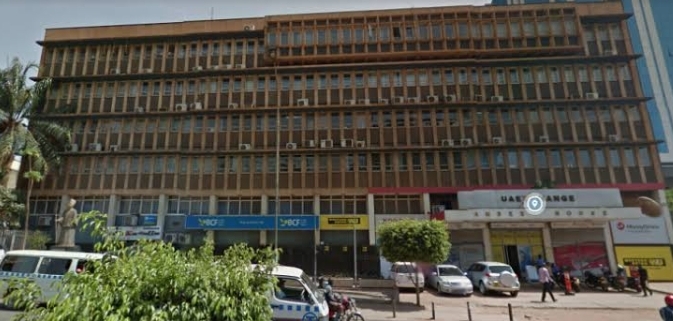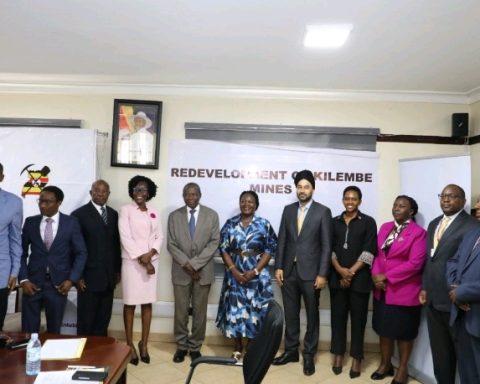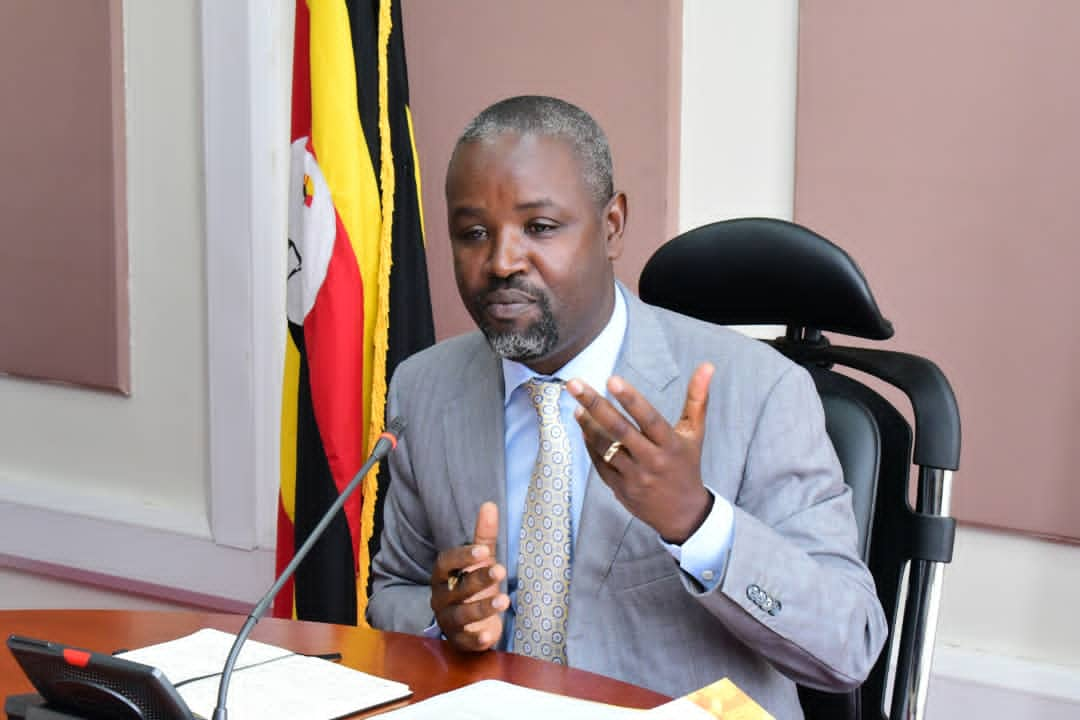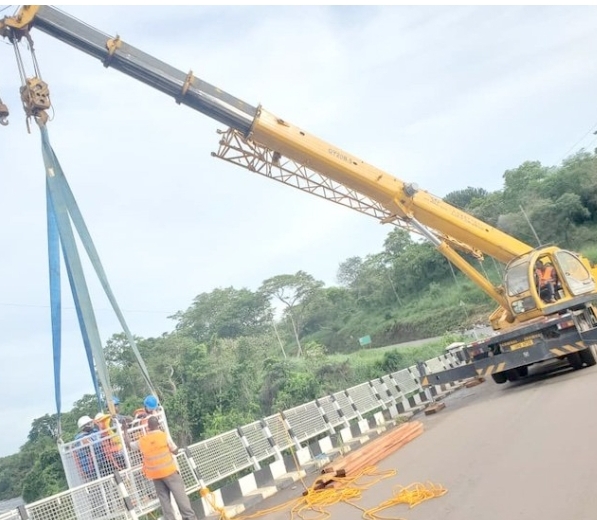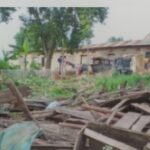Uganda’s Ministry of Energy and Mineral Development is embroiled in a scandal involving the alleged corrupt and illegal cancellation of iron ore licences for Ugandan companies sparking concerns about serious financial repercussions for Uganda.
The controversy surrounds Devki Steel Company, a Kenyan-Indian firm accused of bribing top ministry officials to secure exclusive licences to iron ore mines in Muko, in the Kigezi subregion.
As a result, several Ugandan companies have had their licences illegally revoked, creating financial uncertainty and losses.
This development has raised questions about the ministry’s integrity and the government’s handling of the matter as well as the broader consequences for Uganda’s economy.
If found guilty of unfair business practices, Uganda could face costly lawsuits and reputational damage, potentially leading to significant financial losses. All thanks to corrupt, money-hungry ministers and officials within the ministry of energy.
Background
A geological survey conducted by the Ministry of Energy and Mineral Development between 2006 and 2008 confirmed the existence of 250 million tonnes of iron ore deposits in the Kigezi region.
Most of these deposits were found in Kanungu District; Bukimbiri in Kisoro District; Muko, Nyamiringa, and Nyamweru sub-counties in Rubanda District; and Buhara Sub-County in Kabale District.
During the 2021 presidential campaigns, President Yoweri Museveni promised a steel factory in the Kigezi subregion.
Consequently, several local companies were granted exploration licences in November 2023, and began initial works in 2024 including pitting, reconnaissance and acquiring exploration equipments.
These works, it must be noted, have been inspected and approved by geological department officials.
The companies are also building access roads for heavy exploration equipment and machinery now stationed in Muko mines and Muko Police station.
These companies have as well acquired a lot of land, and compensated local land owners as a requirement for attaining mining leases.
According to their submitted work plans, these firms are working ahead of schedule in order to shorten the period of acquiring mining leases since they have already signed agreements with their international investment partners for establishment of multi billion dollar steel factories.
Enter Corruption
But in a shocking turn of events, the exploration licences for these local firms were abruptly revoked without explanation or evidence of breach and handed to Devki Steel Company, owned by Narendra Raval (alias Mr. Guru) after lying to the president that these local firms were not existing on ground.
According to sources, this happened in March under unclear circumstances.
This development has left local companies and communities frustrated and confused, counting their losses with no answers.
Area MPs have stormed the ministry of energy accusing officials of colluding with the Kenyan- Indian exploiters to frustrate development in their constituencies.
It must be noted that Devki Steel is said to employ only Somalis, Indians, and Kenyans excluding Ugandans.
It also raises questions about how Devki Steel secured exclusive rights to export iron ore from Uganda an activity currently illegal under Ugandan law.
In 2015, President Museveni imposed a ban on exporting unprocessed iron ore and other minerals to promote local industrial growth and create employment.
To support this, Parliament passed the Mining and Minerals Bill in 2021. The Mining and Minerals Act of 2022 emphasizes value addition and maximizing local economic benefits across the mineral value chain.
Permanent Secretary Irene Batebe stated that value addition would help Uganda fully benefit from its mineral resources:
“There is opportunity in value addition. That way, you retain value in the country. You can employ Ugandans typically 3,000 to 5,000 people per mine and provide goods and services tied to this value addition.
We’re supporting companies that are moving in this direction.”
Despite this, Devki Steel Group secured an exclusive raw material export deal worth billions annually.
Allegations of bribery and corruption swirl around Devki’s owner, Narendra Raval.
He’s accused of bribing top officials to curry favor with the President.
For example, the company claims a $1 billion investment in Kenya but insiders say the real figure is closer to just $230 million.
Devki is also accused of exceeding its mining quota extracting 5 million tonnes of iron ore instead of the agreed 500,000 tonnes which also expired long time ago.
Ministry officials have gone ahead to lie to the president that Devki stopped export and yet he has illegally exported an extra 4.5 million tonnes.
Apparently he has signed a new concession to export an extra 1.5 million tonnes in disguise of building two factories in Ntugamo- one for Klinker and another for steel both estimated at 500m dollars, which he claims he is getting from a funder.
In so doing, he’s using Uganda’s minerals to acquire loans which he’ll probably not even invest in Uganda, considering the previous loans he acquired are yet to be paid.
Uganda’s Loss, Devki’s Gain
The value disparity between Uganda and Kenya is stark.
Devki Steel reportedly buys Uganda’s iron ore at $7–$10 per tonne. It then processes and sells it in Kenya at $900 – $1300 per tonne.
Yet, local manufacturers like Thembo Steels purchase crashed iron ore between $45- $50 per tonne, thus promoting and supporting local miners in the process unlike the exploitative Devki Steel which disregards locals.
Kenya gains the benefits of value addition while Uganda earns just peanuts on top of fflouting environmental guidelines set by NEMA whereby he has gone ahead to establish temporary quarries run by Indians and Somalis on the roadsides, crashing iron ore acquired from local artisanals.
This situation raises serious questions about the fairness and sustainability of Uganda’s mining industry and policy direction.
Hon. Nyamutoro Underfire
Energy Ministry officials, including Minister of State for Mineral Development Hon. Phiona Nyamutoro, are accused of colluding with Devki Steel Group who she has taken to Gulu to meet Gen Salim Saleh, and also forced her way to the president, to convince them to allow export of these raw materials s for her own selfish interests causing a heavy economic loss to the country.
These allegations have sparked outrage among local companies, who say the minister’s actions are undermining their contribution to national development.
It should be noted that in mid-2024, Nyamutoro together with ministry officials survived a brutal standoff after Devki Steel security guards threatened to shoot them during an inspection in Muko.
They had been alerted by local firms that Devki’s subsidiary, National Cement Company, had been engaging in illegal mining after chasing and threatening to shoot exploration teams of licence holders for over seven months.
This was all over media in Uganda.
Note: Owning land does not grant the right to mine on it something National Cement was violating.
Yet less than a year later, the naive and inexperienced money hungry Hon. Nyamutoro is now siding with the same company to frustrate licenced local firms on the ground.
This turnaround has left many questioning what changed.
Legal experts warn that the country could face massive financial damages if the affected firms take legal action.
“These allegations against Minister Nyamutoro are serious. The government must investigate immediately and ensure the mining sector remains fair, transparent, and free from corruption,” a source told this website.
Scandalous Devki
Devki Steel is no stranger to scandal, especially in its home country, Kenya.
The company was previously caught in a KSh 4 billion tax evasion scandal.
A leaked email exposed attempts by Devki subsidiaries Devki Steel Mills and Cemtech Ltd to pressure the Kenya Revenue Authority (KRA) into ignoring tax liabilities of KSh 1.6 billion and KSh 2.4 billion, respectively.
The email also detailed threats against KRA and Treasury officials who resisted, including threats of dismissal and anti-corruption investigations.
Regulatory violations extended beyond taxes.
One major scandal involved Devki’s Simba Cement allegedly selling underweight cement bags in violation of Kenya Bureau of Standards (KEBS) regulations yet KEBS officials were reportedly silenced with job threats.
Competitors feared retaliation and considered leaving the market due to Devki’s growing monopoly.
Concerns have also been raised over poor-quality steel returned by major contractors and Chinese firms.
This is a developing story. More to come…

